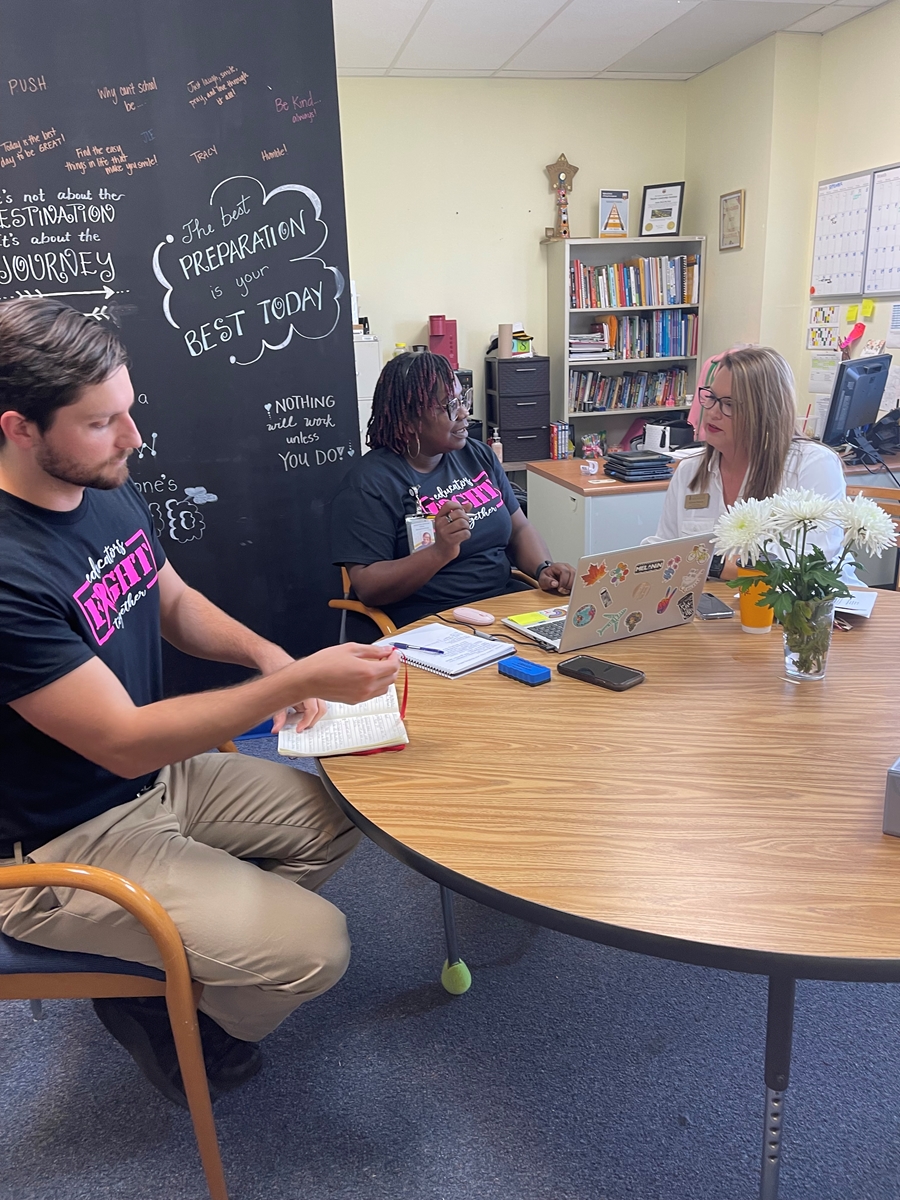
Cindy Willis is the lead teacher at the Harrisburg Juvenile Treatment Center, working with adjudicated students in seventh through 12th grades.
Throughout her teaching career — she started as an English and journalism teacher at Atoka High School in Oklahoma — Willis was placed in leadership roles. She sometimes struggled. She'd never been trained to lead. When a mentor at the state level encouraged her to apply for an IMPACT Arkansas Fellowship last year, she jumped at the opportunity. She was accepted into the innovative leadership preparation program last year. Willis will graduate in December with a master's degree in educational leadership from the U of A, along with 19 other fellows in the sixth cohort.
"I have always been considered a leader, but IMPACT taught me how to be a leader," she said.
Read more about her experience in a Q&A.
IMPACT is for educators who show potential and aspire to become leaders in their own schools and districts. Fellows are recruited in Arkansas schools with at least 70 percent free and reduced lunch status.
"IMPACT is a true 'grow your own' program as graduates commit to staying in their current school for two years post-graduation after earning their M.Ed. online from the U of A," said Ed Bengtson, principal investigator of the program at the U of A. "The purpose of IMPACT is to support K-12 education in the state by building leadership capacity in high-needs schools."
Nearly 100 percent of IMPACT graduates remain in Arkansas schools and 81 percent remain in schools with poverty status.
The university partnered with the Walton Family Foundation to launch the program in 2016. The first cohort had 10 fellows from six school districts. As of 2022, there are 128 fellows from 89 schools, 59 public school districts and charter school districts, and they are represented in all education service cooperative regions and the Arkansas Public School Resource Center.
The program grows with every new cohort. Nearly 200 people applied for 22 available spots this year, and they will graduate in December 2023. "We estimate that these leaders will impact more than 800 teachers and 8,000 students," Bengtson said.
Graduates have become instructional facilitators, assistant principals or principals. Kevin Beaumont, a former teacher and principal in Northeast Arkansas who's now the director of outreach for IMPACT, said the program has proven successful as a teacher-leader pipeline. Fifty percent of fellows are now leading from the classroom, and the other half are serving in formal leadership roles.
"This program has been life-altering for me but also for every adult learner and child I have encountered since," said Anita Hart-McNair, an educator in her seventh year at Arkansas Lighthouse Charter School in Jacksonville.
She said the coursework deepened her leadership skills "in real time."
"I knew that the information I was being exposed to had value because I was able to immediately take it back into my building and apply it," she said. "I saw growth in teachers and students in real time because of this program."
Hart-McNair and John Osborn are co-education directors at Lighthouse. They lead together, equally. They both graduated from IMPACT in December 2021. Read more about their experiences in a Q&A.
The two attribute much of their success to the program's directors of support — or "coaches," as everyone calls Jill LaRosa and Allison Prewitt.
"Having a direct line to a coach for the entire program allowed me to have a professional and personal thought partner," Hart-McNair said.
Osborne agreed that the support — and real-world coursework — is crucial.
"Throughout the program, you are learning by doing. All projects, assignments and tasks are related to the work you are doing in the building," he said. "After IMPACT, you will be a better educator, guaranteed. We all want what is best for students, and IMPACT gives you the resources to be successful in that quest."
Osborn said even for those who don't plan to become a formal school leader, every staff member is a role model to someone, whether it's a student, adult or parent. "We all have the ability to affect real change in the building," he said.
IMPACT coursework is delivered virtually to students across the state using several technologies that allow for live instruction and a social, cohort-based learning experience with U of A professors and highly accomplished school leaders. The learning doesn't end when the 18-month program is over. Fellows join an active group of alumni who give back to the program and serve as a professional learning network for one another.
"IMPACT truly encourages the concept of lifelong learners," Osborn said. "There is always something that can be done better, and we can always learn more. The IMPACT network is extensive, and staying in touch with the coaches and the different cohorts ensures you are always growing and improving in your practice."
Topics
Contacts
Shannon G. Magsam, director of communications
College of Education and Health Professions
479-575-3138,